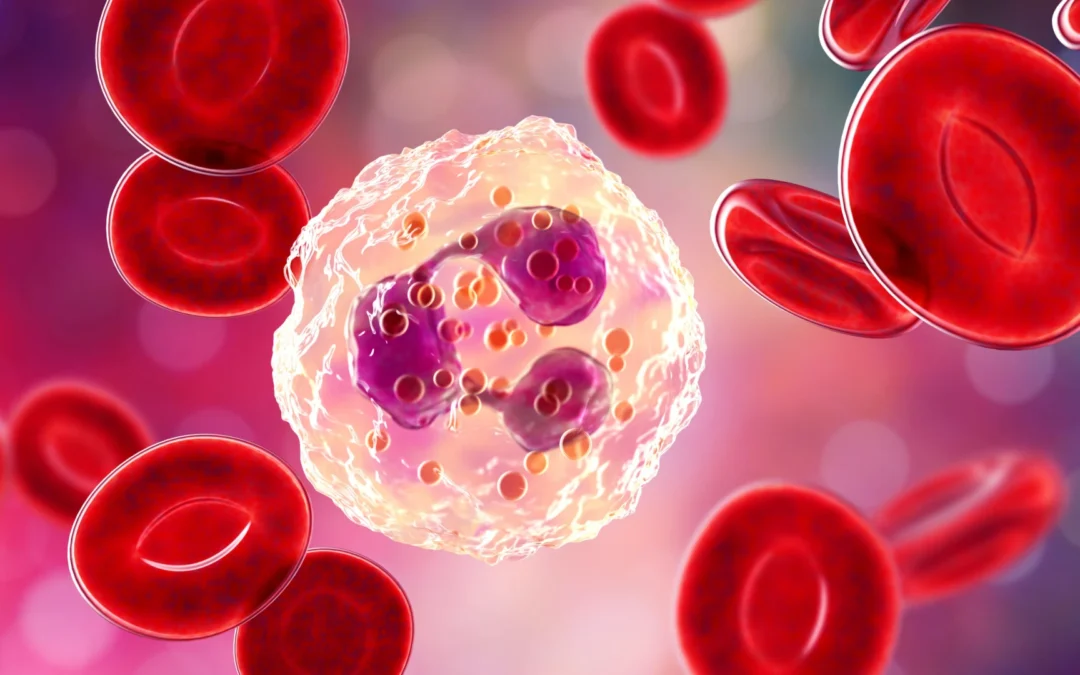There’s a reason it’s commonly referred to as the ‘miracle of life’. Becoming pregnant is a complex process that involves many different factors, from both the mother and the father, all of which need to line up just right. However, for some women, it also brings the risk of gestational diabetes mellitus (GDM), a condition that can affect both the mother and the unborn child. Addressing the potential of gestational diabetes before conception, rather than waiting until the standard 24-28 week blood test, is a far more proactive approach.
Understanding WHAT Gestational Diabetes Is
Gestational diabetes is a type of diabetes that can develop during pregnancy. About one in seven women will develop it, and it’s usually diagnosed between 24 to 28 weeks into a pregnancy. The exact cause is not fully understood, but it’s believed that insulin resistance develops as a result of the changes in a woman’s body caused by the pregnancy.
Insulin, which is produced by the pancreas, regulates how glucose enters the body’s cells from the bloodstream. Whilst glucose (the type of sugar used by our cells ) is the primary source of energy for the body, too much in the bloodstream becomes a problem. During pregnancy, some of the hormones made by the placenta can interfere with the action of insulin in the body, leading to the pancreas needing to make extra insulin to keep blood glucose levels balanced. This is called insulin resistance. If the pancreas cannot make enough extra insulin to overcome this resistance, blood glucose levels continue to rise, and gestational diabetes develops.
Complications from gestational diabetes during pregnancy, can include high blood pressure, preeclampsia (seriously high blood pressure and signs of damage to organs, most commonly the liver and kidneys, which can lead to complications for both the mother and the baby if not properly managed) and the need for a caesarean section.
For most women, diabetes goes away after the baby is born, but it has been shown to lead to an increased risk of Type 2 diabetes after pregnancy, as well as a higher risk of developing gestational diabetes in future pregnancies. There is also some evidence that gestational diabetes of the mother increases the risk of Type 2 diabetes developing in the child.
Contributing Risk Factors for Women
The exact reasons why some women develop insulin resistance during pregnancy are not clear, but the following risk factors are considered likely to increase the chance of developing gestational diabetes. They include:
- Obesity: Women who are overweight or obese before pregnancy are at a higher risk of developing gestational diabetes.
- Family History: Having a close relative with diabetes, especially a parent or sibling, increases the risk of gestational diabetes.
- Age: Women falling pregnant over 35, are at a higher risk of developing gestational diabetes.
- Ethnicity: Women from certain ethnic groups, including African American, Hispanic, Native American, and Asian American, have a higher risk of gestational diabetes.
- Previous Gestational Diabetes: Women who had gestational diabetes during a previous pregnancy are more likely to develop it in future pregnancies.
- Polycystic Ovary Syndrome (PCOS): Women with PCOS, a hormonal disorder, have a higher risk of developing gestational diabetes.
- High Blood Pressure: Women with high blood pressure are at an increased risk of gestational diabetes.
- Sedentary Lifestyle: Lack of physical activity can contribute to the development of gestational diabetes.
Outcome Risk Factors for Babies
These risks primarily stem from elevated blood sugar levels in the mother, which can affect the developing foetus. Some of the potential complications for unborn babies due to gestational diabetes include:
- Macrosomia: This condition refers to the baby being larger than average. Elevated blood sugar levels in the mother can lead to increased insulin production in the baby, causing excessive growth. Macrosomia can complicate delivery and increase the risk of injuries to both the baby and the mother during childbirth.
- Hypoglycemia (Low Blood Sugar): Babies born to mothers with gestational diabetes may have low blood sugar levels at birth because their own insulin production is high. This can result in shakiness, difficulty feeding, and, in severe cases, seizures in the newborn.
- Jaundice: Babies of mothers with gestational diabetes are at a higher risk of developing jaundice, a condition characterised by yellowing of the skin and eyes. Jaundice occurs due to the build-up of bilirubin, a breakdown product of red cell turnover, in the baby’s blood and tissues. Jaundice is an indication of liver failure.
- Respiratory Distress Syndrome (RDS): Babies born to mothers with gestational diabetes are at an increased risk of developing respiratory distress syndrome, a breathing disorder that affects premature infants. RDS can make it difficult for the baby to breathe and may require medical intervention.
- Obesity and Type 2 Diabetes: Babies exposed to gestational diabetes in the womb may be at a higher risk of developing obesity and Type 2 diabetes later in life, as the high blood sugar levels during a mother’s pregnancy can influence the baby’s metabolism and increase the likelihood of these conditions in adulthood.
- Stillbirth: In severe cases of uncontrolled gestational diabetes, there is a slightly elevated risk of stillbirth, which is the death of the baby in the womb after 20 weeks of pregnancy.
Reducing the Risk of Complications
While the exact cause of gestational diabetes is unknown, and certainly proving complex, there are things that can be done to minimise the risk. Addressing the potential of gestational diabetes before conception empowers women by giving them the knowledge and understanding of the potential risks involved. Education and support can lead to healthier lifestyle choices not only before conception but also throughout pregnancy and beyond. The good news is that optimising diet and health choices will not only reduce the risk of many other conditions, it is likely to make conception easier, and the pregnancy less stressful in general.
Preparation for a trouble-free pregnancy
- Early screening for gestational diabetes and management of blood sugar levels if found to be elevated
- Maintaining a healthy weight
- Lifestyle changes, such as regular exercise, eliminating caffeine, alcohol and tobacco and managing stress levels
- A healthy, and nutritionally balanced diet, rich in fruits, vegetables, whole grains, and lean proteins. Ensure you’re getting enough folic acid, calcium, iron, and other essential nutrients
- Avoiding exposure to harmful substances both at home and work
- Making sure immunisations are up to date. Some infections, such as rubella, can harm the developing foetus
Manage diabetes naturally
If you’ve been diagnosed with gestational diabetes, or potentially being at risk, your doctor will recommend the best treatment for you. You might want to also look at natural ways to help regulate your insulin levels.
NutriKane™ has a range of products that have been proven scientifically to help manage specific health conditions as a part of diet control. They work by feeding the microbiome and providing essential nutrients and antioxidants to allow the body to function at optimal efficiency. The products are safe, natural, and made in Australia, by an Australian company.
NutriKane™ D lowers blood sugar levels by providing a carefully formulated nutrient profile, that has been scientifically developed and extensively tested in clinical trials. We believe that when used as a part of a healthy diet, NutriKane™ D can be included in a plan to effectively manage blood sugar levels.
Find out more about the benefits of NutriKane D, or get in touch for personalised recommendations.










